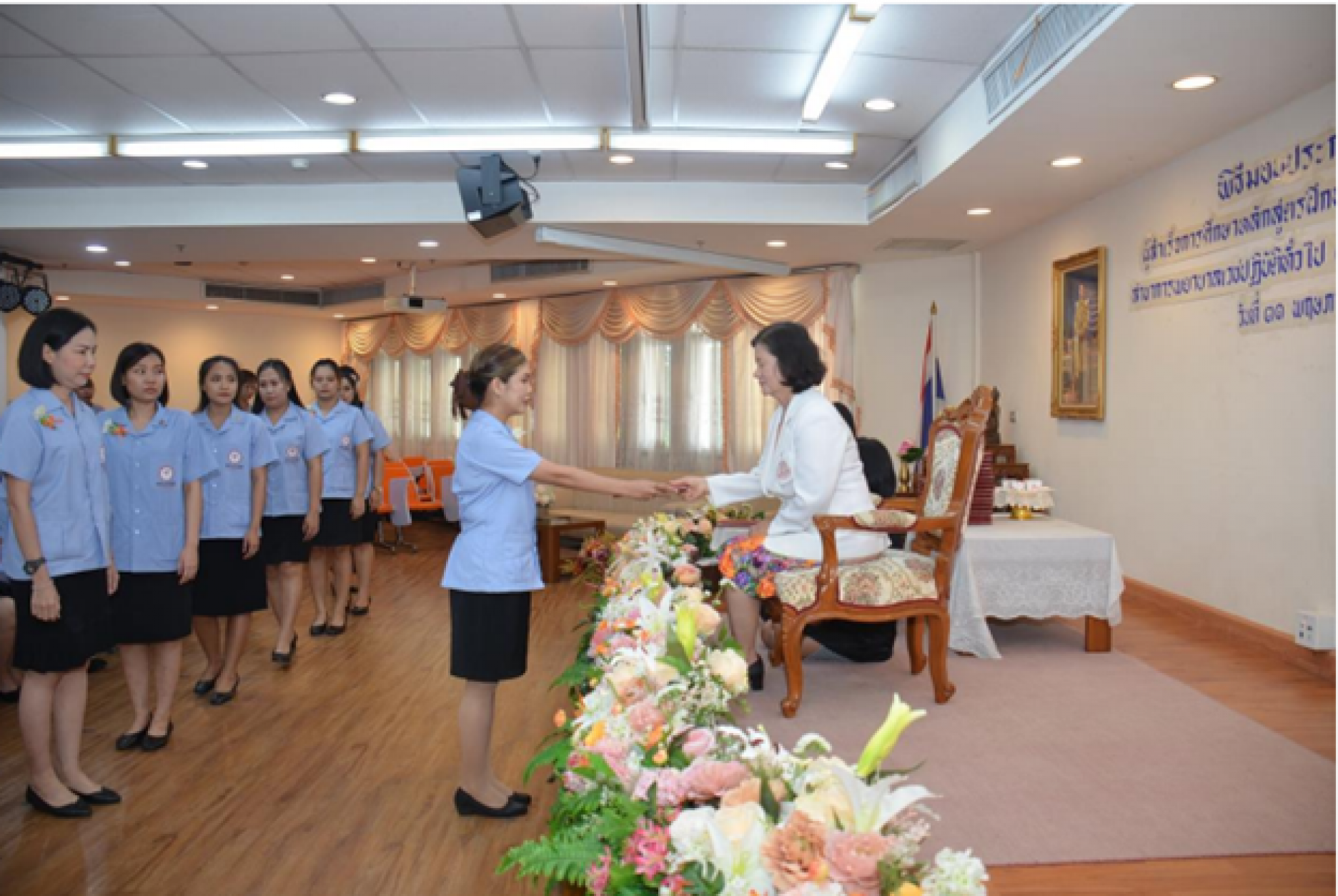





| Target | Indicator | Result |
|---|---|---|

SDG 4
QUALITY EDUCATION
|
||
| 4.3 By 2030, ensure equal access for all women and men to affordable and quality technical, vocational and tertiary education, including university | 4.3.1 Participation rate of youth and adults in formal and non-formal education and training in the previous 12 months, by sex | the number of adult people tran in formal education in higher in every year |
The Faculty of Nursing at Srinakharinwirot University recognizes the necessity of collaborating with the Nursing Council to train professional nurses with the knowledge and skills to assess health conditions, screen patients, provide emergency assistance, manage primary medical care, and continue care for chronic patients. The goal is to empower nurse practitioners to play a vital role in primary healthcare services, strengthening the "near home, near heart" system, ensuring effective health service delivery at the community level. Objectives General Objective: To equip trainees with a comprehensive understanding of healthcare policies and systems, focusing on general nursing practices and primary care. The program aims to develop skills in health assessment, clinical decision-making, differential diagnosis, and the management of common and chronic conditions. Graduates are expected to be proficient in planning and coordinating care, working in healthcare teams, and promoting self-care among patients. Specific Objectives: Graduates should be able to: Explain healthcare policies and systems. Conduct comprehensive health assessments and make clinical decisions. Manage and treat common illnesses and conditions effectively. Evaluate complex problems in chronic illness management. Integrate evidence-based care plans for problem-solving. Collaborate effectively in healthcare teams. Employ diverse strategies to promote self-care in communities. Maintain ethical and professional relationships with patients. Methods Course Structure: The program comprises 18 credits, with 12 credits of theoretical coursework and 6 credits of practical training. Theoretical Components: Topics include healthcare policies, advanced health assessment, rational drug use, primary care, and chronic disease management. Practical Components: Hands-on training in primary care settings, emergency management, and chronic disease care, with assessments through written exams, reports, and practical evaluations. Results Participant Demographics: The majority of trainees were women (90.77%), aged between 21-40 years, with a bachelor's degree and varying years of work experience in nursing. Performance: Participants were evaluated across multiple subjects, with grades predominantly in the A and B range. Courses covered include health policy, clinical decision-making, rational drug use, and primary care practices. Feedback: The program was well-received, with participants expressing satisfaction with the course structure, teaching methods, and the support provided during practical training.
The impact of the Nursing Practitioner Program (37) can be summarized as follows: Participant Satisfaction and Learning Outcomes:
Participants rated the program positively, with most feedback indicating satisfaction with the course structure, teaching methods, and practical training.
The program successfully enhanced participants' skills in health assessment, clinical decision-making, and management of primary and chronic care. This is reflected in the high percentage of participants achieving grades in the A and B range across various subjects .Practical Application:
The program equipped trainees with the ability to apply their knowledge and skills in real-world healthcare settings. This includes performing health assessments, providing primary care, and managing chronic illnesses effectively .Feedback on Practical Training: The hands-on training provided at various healthcare facilities was well-received. Participants appreciated the practical experience, which was crucial in solidifying their understanding and application of theoretical knowledge . Impact on Healthcare Services: The program's emphasis on practical, evidence-based training is expected to have a positive impact on the quality of primary care and chronic disease management in the healthcare systems where the graduates will work. The participants' newly acquired skills are likely to improve patient outcomes and enhance the overall efficiency of healthcare services.

